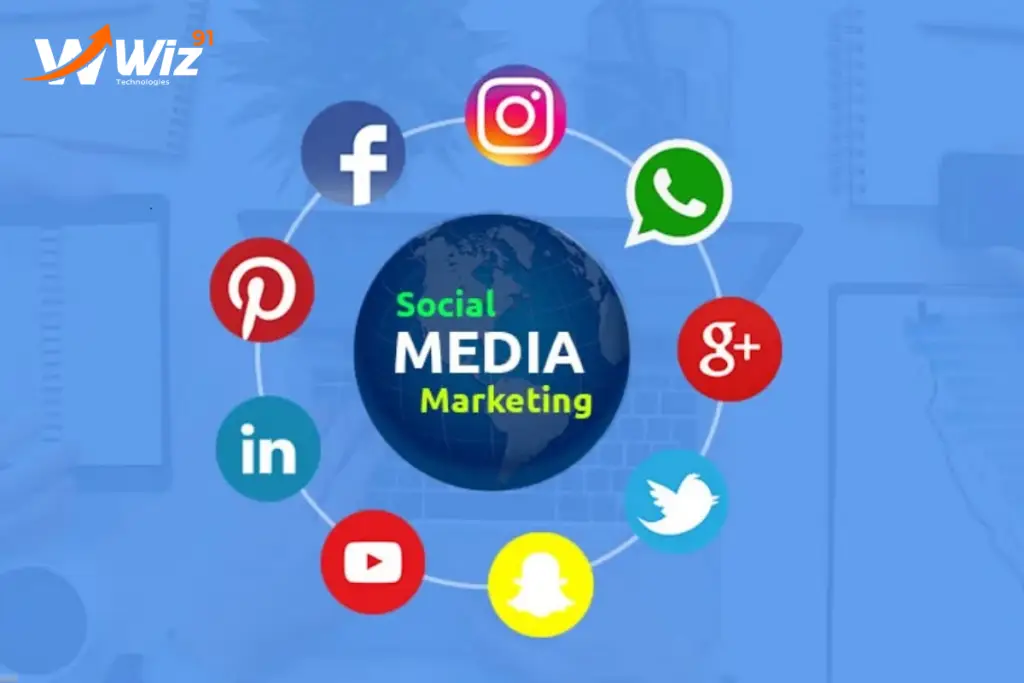Navigating the Social Media Landscape: Choosing the Right Platforms for Your Social Media Marketing Strategy
In today’s digital age, social media has become an indispensable tool for businesses to connect with their audience, build brand awareness, and drive engagement. With a plethora of social media marketing platforms available, including giants like Instagram, Facebook, and Twitter, choosing the right ones for your social media marketing strategy is crucial. In this article, we will delve into the unique features and advantages of each platform to help you make informed decisions that align with your business goals.
I. Instagram: Visual Storytelling at Its Finest
Instagram, with over a billion monthly active users, is a visual-centric platform that thrives on captivating imagery and short-form videos. It is an ideal space for brands that can leverage the power of visual storytelling to engage their audience.
1. Visual Appeal:
Instagram’s focus on visuals makes it perfect for businesses with visually appealing products or services. Whether you’re in the fashion, travel, or food industry, the platform allows you to showcase your offerings through high-quality photos and videos.
2. Engagement and Influencer Marketing:
The platform’s engagement rates are notably high, making it a hotbed for influencer marketing. Collaborating with influencers in your niche can significantly amplify your brand’s reach and credibility.
3. Instagram Stories and Reels:
Utilizing Instagram Stories and Reels provides a dynamic way to connect with your audience. Stories offer a behind-the-scenes look, while Reels allow for creative and entertaining short-form videos, keeping your brand relevant and engaging.
II. Facebook: The All-in-One Social Hub
With its massive user base of over 2.8 billion monthly active users, Facebook remains a cornerstone of social media marketing. It offers a versatile platform that caters to various content formats and audience demographics.
1. Diverse Content Formats:
Facebook supports a wide range of content formats, including text, images, videos, and links. This versatility allows businesses to experiment with different types of content to find what resonates best with their audience.
2. Targeted Advertising:
One of Facebook’s standout features is its powerful advertising platform. With detailed user demographics and interests, businesses can run highly targeted ad campaigns, ensuring their content reaches the right audience.
3. Community Building:
Creating and nurturing communities on Facebook is facilitated through Groups and Pages. Establishing a sense of community fosters engagement and loyalty among your audience, providing a space for discussions and interactions around your brand.
III. Twitter: Real-time Conversations and Trending Topics
Twitter, with its fast-paced and real-time nature, is perfect for businesses looking to engage in immediate conversations and tap into trending topics. With 330 million monthly active users, Twitter offers a unique space for concise and impactful communication.
1. Timely Updates and Trends:
Twitter excels in providing real-time updates and participating in trending conversations. This makes it ideal for industries that benefit from staying current, such as news, technology, and entertainment.
2. Direct Communication:
The platform’s brevity and directness allow for quick and direct communication with your audience. Utilizing features like Twitter Chats and polls can further enhance your engagement and gather valuable insights.
3. Brand Personality:
Twitter is an excellent platform for showcasing your brand’s personality and engaging in witty interactions. Establishing a unique voice can set your brand apart and foster a more personal connection with your audience.
Choosing the Right Platforms: Social Media Marketing
Now that we’ve explored the unique strengths of Instagram, Facebook, and Twitter, let’s discuss how to choose the right platforms for your social media marketing strategy.
1. Know Your Audience:
Understanding your target audience is crucial. Consider their demographics, preferences, and behaviors to align your strategy with the platforms they frequent the most.
2. Set Clear Goals:
Define your marketing objectives – whether it’s increasing brand awareness, driving website traffic, or boosting sales. Different platforms excel in different areas, so align your goals with their respective strengths.
3. Leverage Cross-Platform Synergy:
While each platform has its unique features, integrating your strategy across multiple platforms can create a cohesive and impactful online presence. Share consistent messaging but tailor the content to suit each platform’s format.
4. Analyze Performance Metrics:
Regularly monitor and analyze the performance of your content on each platform. Utilize analytics tools to track engagement, reach, and conversion metrics. Adjust your strategy based on the insights gathered.
Conclusion:
In the dynamic world of social media marketing, choosing the right platforms for your marketing strategy involves a thoughtful consideration of your brand, audience, and objectives. Instagram, Facebook, and Twitter offer distinct advantages, and combining them strategically can maximize your reach and impact. By understanding the unique strengths of each platform and tailoring your content accordingly, you can build a robust and effective social media marketing strategy that elevates your brand in the digital landscape.





